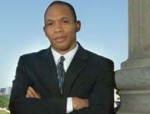From Pamela White’s cover story in Nov. 6 Boulder Weekly: “First they compared him to President John F. Kennedy. Then the global economy crashed, and pundits began to compare President-elect Barack Obama with President Franklin Roosevelt, arguably the greatest president of the 20th century, the man who saw his nation through both the Great Depression and World War II….
Boulder Weekly spent this first dawn of a new political era speaking with William E. Leuchtenburg, a professor of history [emeritus] at the University of North Carolina in Chapel Hill. Leuchtenburg, the author of numerous books on U.S. presidents and presidential history, is a nationally recognized expert on the U.S. presidency, FDR and the New Deal.
Boulder Weekly: Can you compare the challenges [FDR] faced going into office and the enormous difficulties facing President-elect Barack Obama?
Leuchtenburg: The most striking difference between now and then is that Roosevelt came into office at a time of much more severe economic crisis. We were in the fourth year of the Great Depression. Instead of an unemployment rate of the sort we now have — 6 to 7 percent — it was at least 25 percent, probably higher than that.
On the morning of FDR’s inauguration the head of the New York Stock Exchange walks to the rostrum. The brokers expect him to sound the gong to begin trading. Instead, Richard Whitney announces, “The New York Stock Exchange is closing down.” So the whole financial system has come to a halt. That was also true of the Chicago Board of Trade. And when Roosevelt is inaugurated three hours later, every bank in the country has either closed its doors or is on a very limited withdrawal basis. So there is a far greater crisis than we have at the moment.
That having been said, we obviously are in the midst of a very scary international financial meltdown and have been for the past month or so, so to that extent there’s a parallel between Obama and FDR…..
The ways I think Obama and FDR are alike is that they are both transformational figures. They are both inspiring figures. There is both in their manner and their message something that conveys a conviction that the country is headed for better days and that they can be the agent for restoring confidence and bringing about a more promising future. [Now that Obama has been elected], to state the obvious, we’ve got to see whether in fact he can do this. But that is certainly how they’re alike…..
BW: So what is Obama up against if he wants to create a presidential legacy that compares to that left by FDR?
WL: FDR takes office on March 4, 1933, and in the first 100 days sends 15 messages up to the Hill, and Congress enacts all 15. During that period, it’s just an extraordinary change. There had never been in all of American history so much important domestic legislation enacted, and, indeed, arguably there has never been since.
This is the time when you get the creation of the Tennessee Valley Authority, federal insurance of bank deposits, the regulation of securities on Wall Street, protection of unionization, aid to homeowners who owed mortgages — just a whole range of programs of that sort.
BW: How does the recent bailout of Wall Street compare to some of FDR’s actions?
WL: It’s not really comparable. The bailout is restricted to helping financial institutions survive. It isn’t a direct [help] to people themselves. In contrast to what Roosevelt does in the first hundred days and even more in the second hundred days of 1935, when you get the Social Security Act and other pieces of legislation. In those first hundred days of ’33, young men are sent into the forests in the Civilian Conservation Corps. Millions of dollars are given to the jobless who are put to work on federal programs. Mortgage holders are directly helped, not through the banks. The bailout really is not comparable.
BW: When you think about FDR’s infrastructure push, I can’t help but think of the Minneapolis bridge collapse and the experts who pointed out that our infrastructure really hasn’t been a priority since the days of the CCC.
WL: That’s exactly right. I think this is one of the areas that Obama can be expected to work in….
BW: During the Bush years, we heard some conservatives talking about dismantling the New Deal once and for all.
WL: That was certainly true at the outset of the Bush presidency in his first term. He was talking about matters like putting the Social Security system on a voluntary basis. It’s also true that he put people in charge of New Deal agencies — like the SEC — who were less than enthusiastic about enforcing [SEC regulations]. But I don’t think there was ever really any real prospect that the Social Security Act would come to an end, that the SEC would be dismantled, that the TVA dams would be sold. I think the New Deal is with us into the foreseeable future as far ahead as any of us can imagine….”
 Barnes, who has served as a senior adviser during the Obama campaign, will be the president’s top adviser on a range of issues.
Barnes, who has served as a senior adviser during the Obama campaign, will be the president’s top adviser on a range of issues.



 Posted by unccollege
Posted by unccollege